Energy leaders call for collaborative solutions to secure Philippines’ energy future
- June 27, 2025
- 0
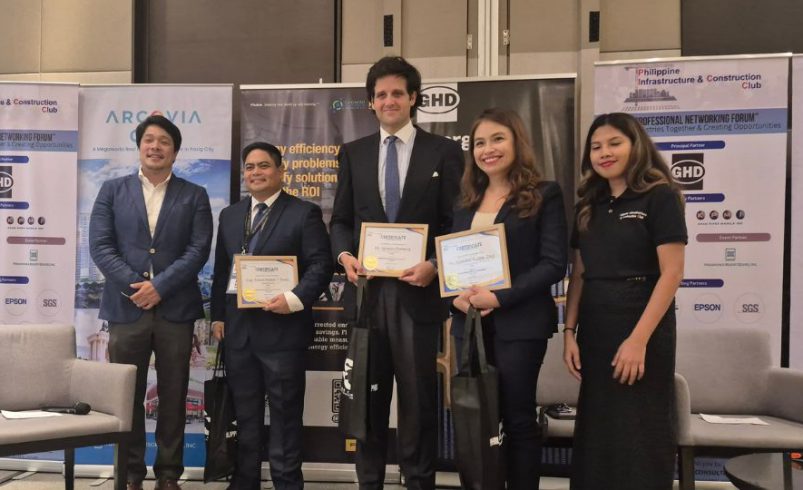
Industry leaders issued a resounding call for unity, urging trans-agency cooperation to forge a sustainable and resilient energy future for the Philippines. During the Philippine Infrastructure & Construction Club’s (PICC) Luncheon on June 20, held at Seda Hotel BGC in Taguig City, the event themed “Philippine Sustainable and Resilient Energy Future” brought together key stakeholders to address the nation’s growing energy demands amid intensifying competition and infrastructure challenges.
Moderated by Mr. Quintin Pastrana, President of WEnergy Power Pilipinas, the luncheon featured compelling insights from Ms. Donnabel Kuizon Cruz, President and CEO of Prime Energy, Mr. Ignacio Domecq, Managing Director of Southeast Asia for Acciona Energia, and Engr. Robert Marlon T. Pereja, Vice President and General Manager of EEI Power Corporation. Their discussions underscored the need for collaborative strategies to ensure energy security, leveraging indigenous resources and innovative partnerships.
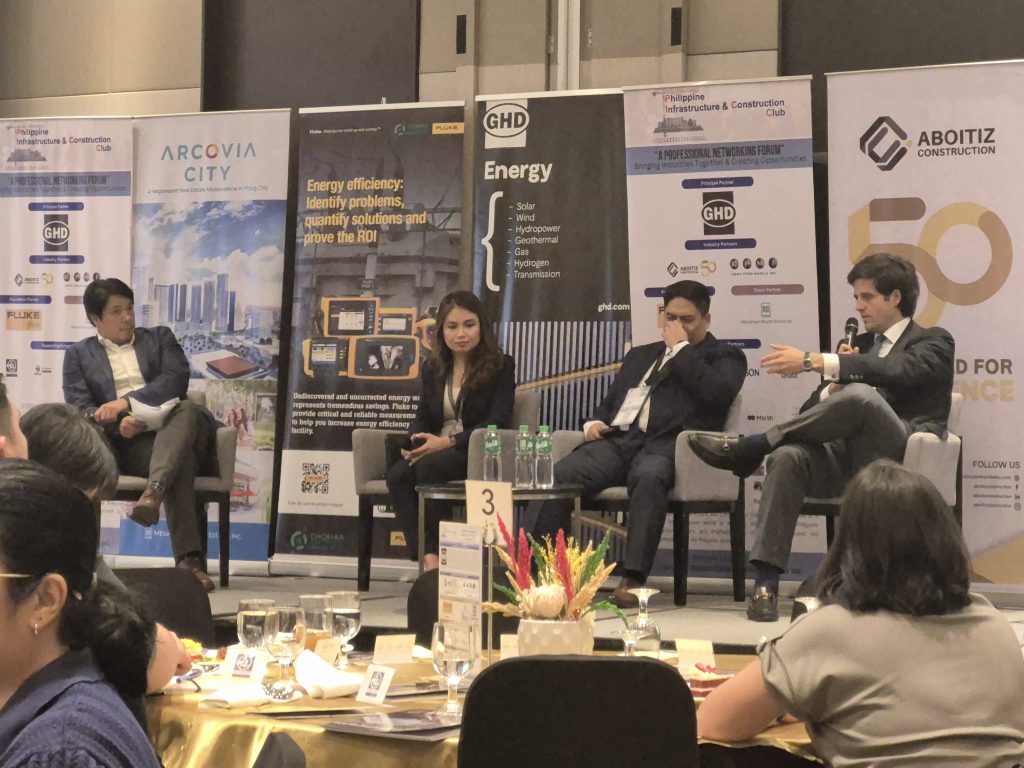
The luncheon served as a platform for industry leaders to align on a shared vision: a robust energy ecosystem built on unity. Pastrana set the tone, emphasizing “co-opetition” as the future, citing collaborative efforts like Acciona’s Cebu plant where multiple firms address specific energy needs. “An ecosystem of companies collaborating will be the template for the future,” he said, highlighting the event’s focus on collective action.
The event made clear that energy security cannot be achieved in silos. Speakers repeatedly emphasized that cooperation—not competition—must be the cornerstone of growth. From shared solar infrastructure to co-developed projects, a new industry norm is emerging.
“We believe it’s very important for industry players to actually be open and start thinking about collaboration rather than fierce competition,” said Engr. Pereja.
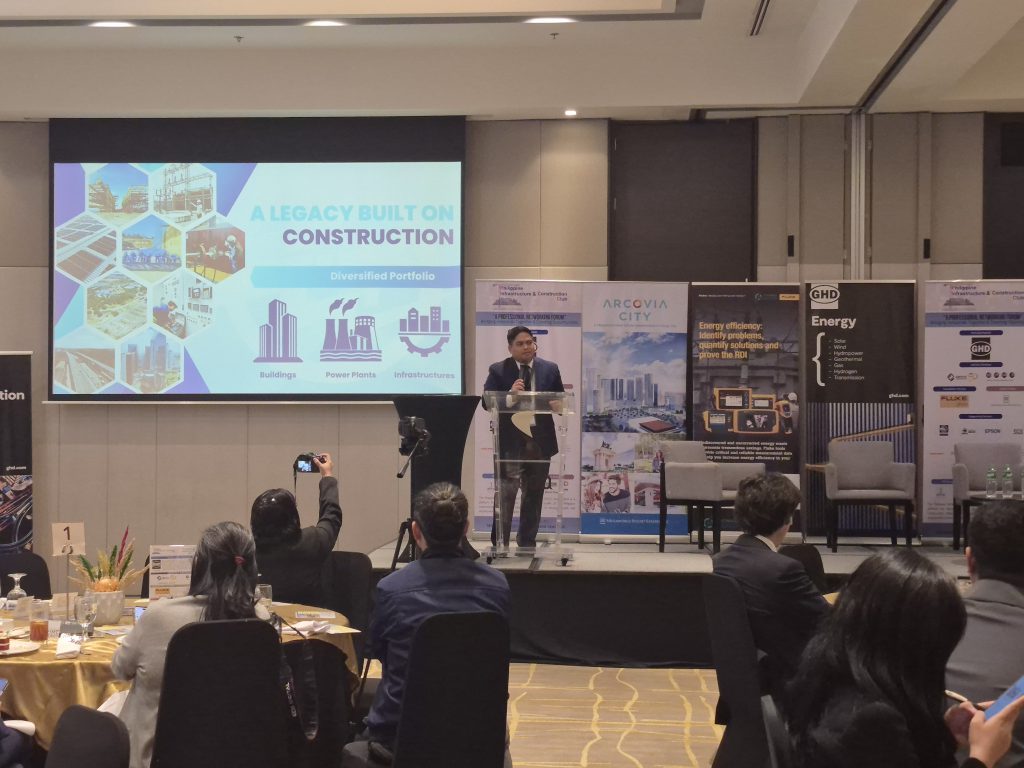
Engr. Robert Marlon T. Pereja, Vice President and General Manager, EEI Power Corporation
He drove the point further with a simple but compelling truth: “It takes companies to build an industry. But it takes an industry working together to build the economy.”
This cooperative mindset was echoed across sectors. Panelists urged openness to subcontracting, shared power generation, and partnerships in government programs like retail electricity aggregation. “When you decide to work together, reach out,” Pereja added. “We are looking for partners to build rooftop solar and power plants across the Philippines.”
Ms. Cruz highlighted Prime Energy’s USD 893 million Malampaya Phase 4 project, aimed at extending the gas field’s life by 7–10 years—ensuring continued power supply for Luzon. “We want to thrive beyond Malampaya. We want to keep the lights on,” she declared.
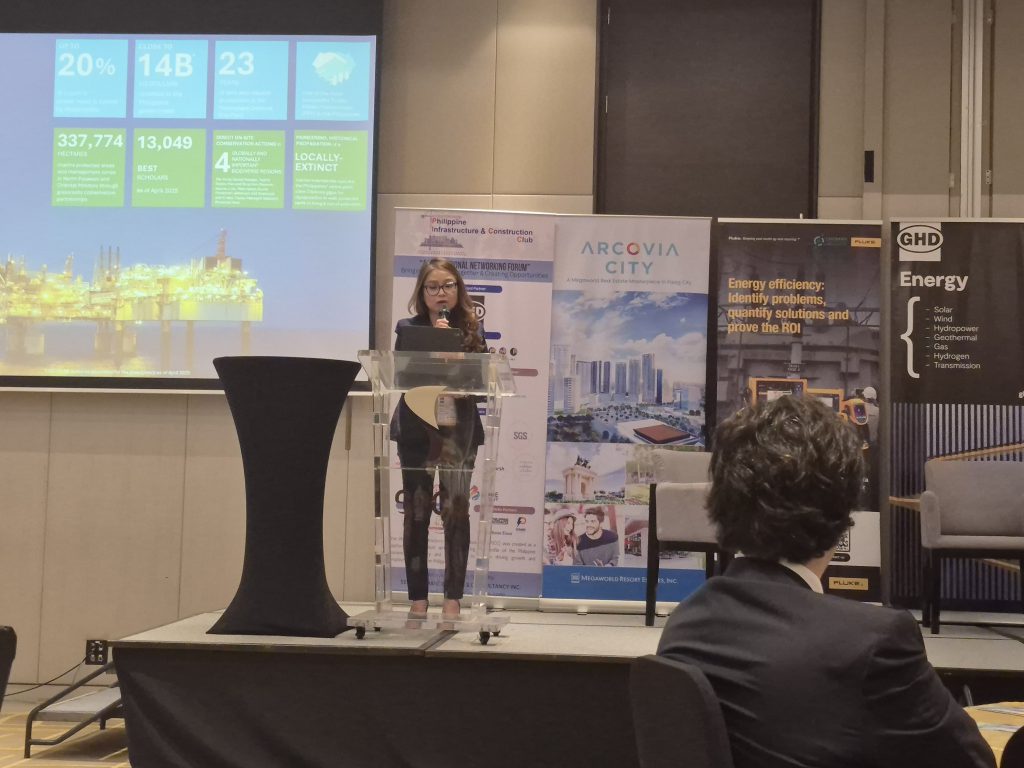
Ms. Donnabel Kuizon Cruz, President & CEO of Prime Energy
But the Malampaya project is more than an energy solution—it’s a community lifeline. Cruz shared how students in a remote Palawan village once took two-hour boat rides just to charge phones or laptops. Now, thanks to a solar-powered microgrid from the Malampaya Foundation, “that whole village no longer goes dark at 6PM.”
“Energy security creates a stable environment for infrastructure investments,” she noted, calling on stakeholders to join in securing the country’s energy backbone. “There is risk, for sure. But the reward will be immeasurably more.”
She also addressed the country’s heavy reliance on imported fuel and stressed the role of indigenous gas as a clean, stable, and locally controlled energy source. “Natural gas is really the perfect complement to renewable energy,” she said. “It ensures affordability, reliability, and grid stability.”
Mr. Domecq offered a global lens, emphasizing that foreign investment in renewables is now more viable than ever thanks to regulatory changes. “There were regulatory barriers preventing companies like us from deploying capital. That changed with the 100% ownership rule in 2022. That moved the needle,” he said.
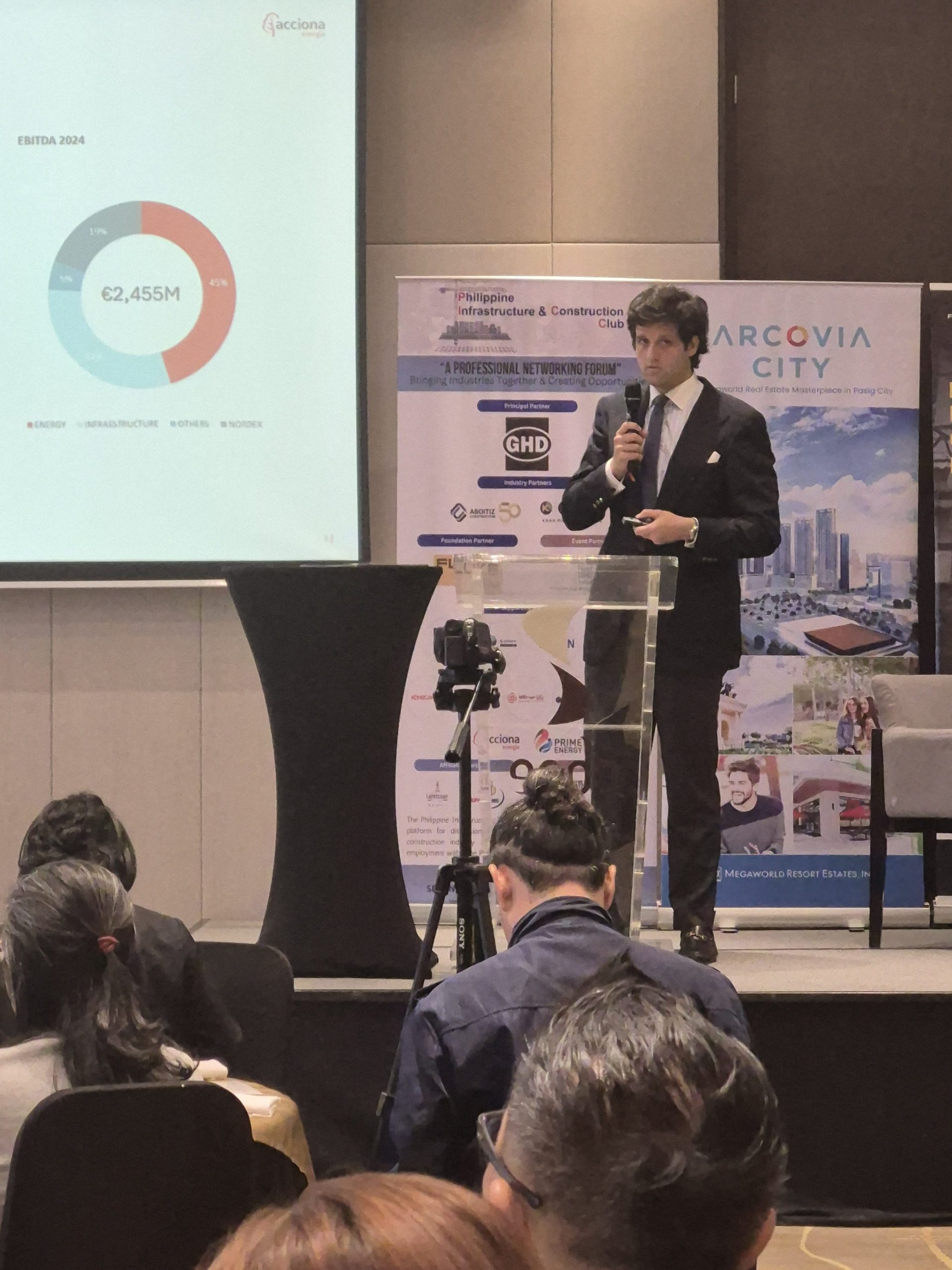
Mr. Ignacio Domecq, Managing Director of Southeast Asia, Acciona Energia
He praised the Department of Energy’s proactive engagement. “Among all Southeast Asian countries we work in, the Philippines is where it’s easiest to reach government agencies—and see outcomes that reflect what investors say,” he said.
Domecq also underlined the importance of building battery storage and leveraging new technologies like floating solar—especially for an archipelagic nation where land is limited. “We believe circular economy principles and innovation—like repowering wind farms or recycling turbine blades—must go hand-in-hand with renewable energy growth,” he added.
Engr. Pereja detailed EEI Power Corporation’s pivot from construction to energy, prompted by shrinking margins, labor shortages, and competitive pressures. “You train a guy for years—he becomes a department manager—and then gets poached by a foreign firm. You just pray your department manager doesn’t resign,” he said.
To overcome such challenges, EEI has crafted a five-pronged strategy: power generation, distributed solar, retail electricity supply, electrical contracting, and energy services. The company aims to meet the country’s projected 800–1,500 MW annual demand growth through both large-scale and decentralized solutions.
Pereja also pointed out the hidden burdens of development—land acquisition delays, right-of-way issues, and overregulation. “We had a 6-month transmission line project that took 1.5 years because we had to deal with hundreds of private landowners,” he shared. “It’s time we streamline these processes to meet our energy goals.”
The luncheon spotlighted a simple but urgent truth: no single company, sector, or government agency can meet the Philippines’ rising energy needs alone. Speakers called for trust-based, cross-sectoral collaboration to develop a resilient energy ecosystem.
From Malampaya’s transformative reach in
The PICC luncheon galvanized attendees to embrace unity, fostering an energy ecosystem that powers homes, schools, and businesses nationwide. As Pastrana concluded, collaborative efforts will light the path to a sustainable future—ensuring economic progress and elevated living standards for all Filipinos.
Follow Power Philippines on Facebook and LinkedIn or join our Viber community to stay up to date on the latest energy news.